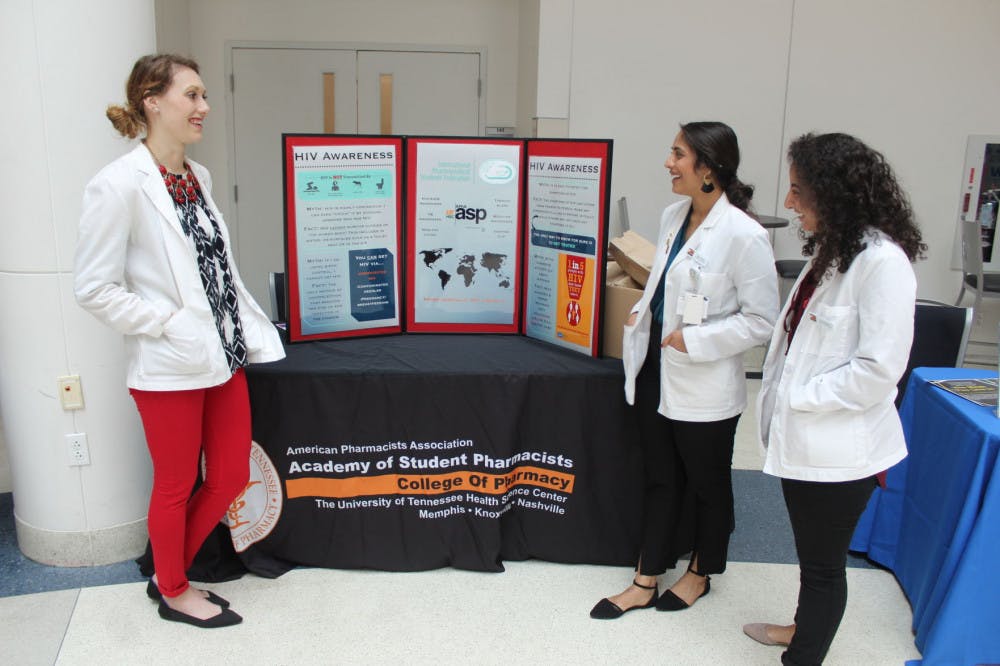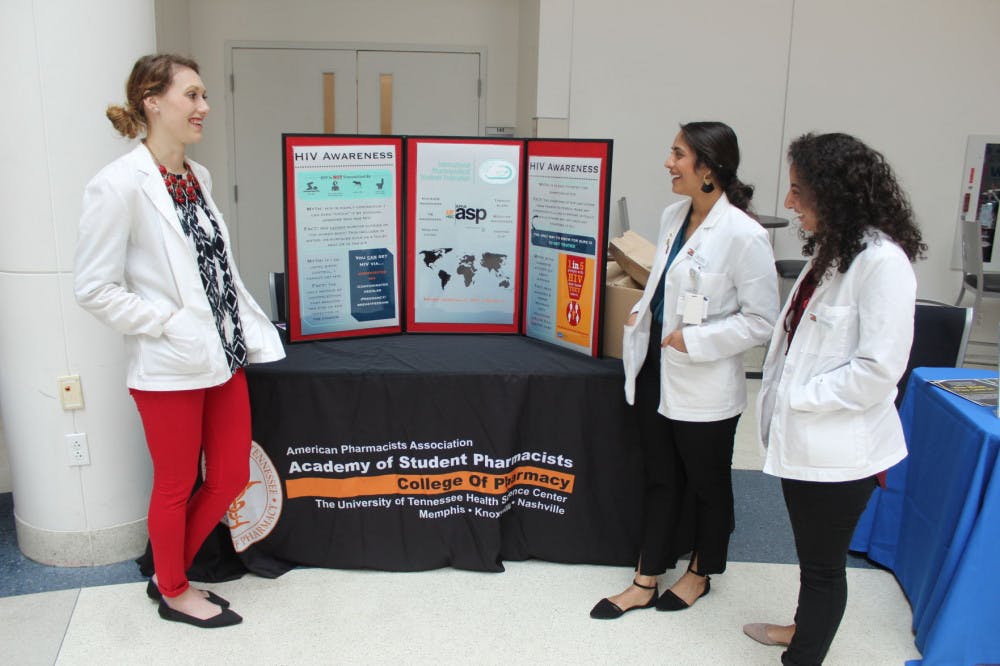
(From left to right: Sarah L. Collier, Kajol Patel, Dina Mikaiel). More than 6,000 people in the Memphis area are living with HIV, according to a 2016 AIDSVu study.
More than 6,000 people in the Memphis area are living with HIV, according to a 2016 AIDSVu study.Â
A glaring problem identified by University of Tennessee Health Science Center student Sarah Collier is giving proper treatment to those susceptible to the disease and those who unknowingly have it.
“Undetectable is unidentifiable,†Collier said. “We need to be more open to talking about it. Getting people treatment is the main goal.â€
Collier was one of the UTHSC students who visited the University of Memphis on Monday to raise HIV awareness and answer questions about the disease and those who are affected by it.
Collier said the public needs to be further educated on the disease and the ways it can be transmitted. According to Collier, one in five people who have HIV does not know it.
“If they (people living with HIV) have a low enough CD4 count, they can have sex without transmitting the disease,†Collier said. “You can’t transmit it from using the same toilet or something like that. It’s a blood thing.â€
Myths about HIV transmission have become widespread in Memphis, as well as throughout the country. Since knowledge and communication are crucial in treating the disease, these myths have made the treatment more difficult.
Hannah Wright, another UTHSC student, debunked some of these myths by explaining the three main ways the disease is spread.
“HIV is highly contagious, so people think you can get it from hugging or kissing,†Wright said. “This is a myth. The disease is primarily transmitted sexually, through contaminated needles or by breastfeeding.â€
UofM Title IX representatives were also present to educate students and address their concerns about sex. They had a booth in the University Center for students who had on or off campus problems pertaining to sex or sexual violence.
Collier and Wright informed students about the proper precautions to take before having sex.
“It’s important to use a new, clean condom for every use,†Collier said. “You’d be surprised how many people don’t know that, and it’s really important.â€
Collier also said people should examine a condom and check for tears or expiration before use.
Information on STI testing and sexual safety can be found online at gettested.cdc.gov.Â
“Symptoms can be noticeable, but there can also be no symptoms at all,†Collier said. “The only way to know for sure is to get tested.â€






